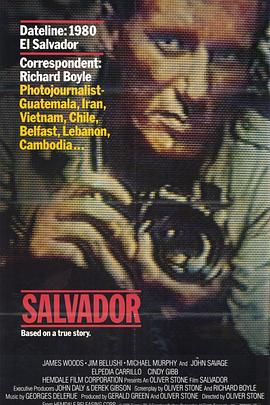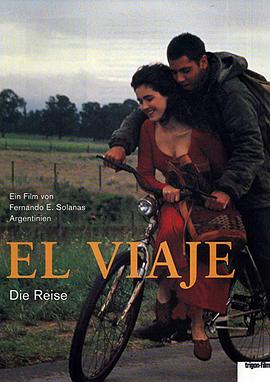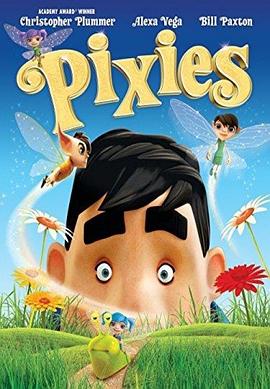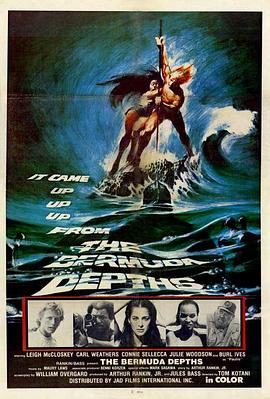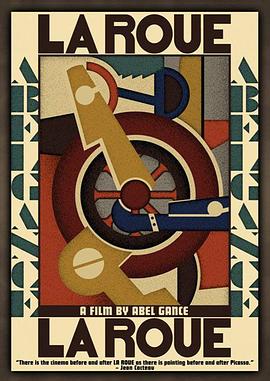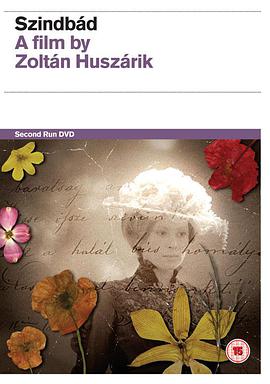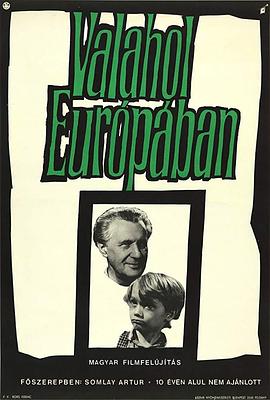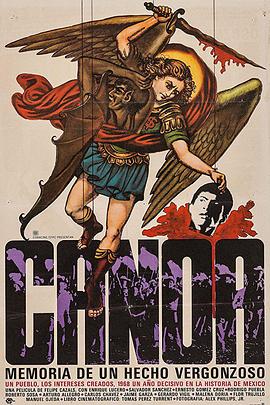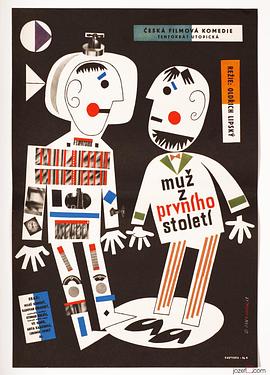-
备注:已完结
类型:恐怖片
主演:詹姆斯·伍兹 詹姆斯·贝鲁什 迈克尔·墨菲 约翰·萨维奇 艾尔皮迪娅·
导演:奥利佛·斯通
语言:英语
年代:未知
简介:理查德(詹姆斯·伍兹 James Woods 饰)是一位职业摄影师,每日,他穿梭于世界各地,寻找能够为他带来经济效益的摄影题材。在行业里浸淫已久的他明白,那些美好的,善良的事物无法吸引人们的注意,唯有暴力、恐怖和灾难能够为他带来机遇。 就这样,理查德和朋友们来到了烽火连天的萨尔瓦多,让理查德没有想到的是,展现在他眼前的,竟然完全是一副人间地狱的惨象。纵使是阅历丰富的理查德,也无法忍受这里发生的点点滴滴,心灰意冷的他决定离开。就在这个节骨眼上,一位名叫玛利亚(艾尔皮迪娅·卡里洛 Elpidia Carrillo 饰)的美丽女子出现在了理查德的生命力,在爱情和事业之间,理查德会做出怎样的选择?
-
备注:已完结
类型:剧情片
主演:马克·伯曼 安吉拉·科雷亚 多米妮克·桑达 Walter Quiroz
导演:费尔南多·索拉纳斯
语言:其它
年代:未知
简介: 十七岁的马丁(Walter Quiroz 饰)在家乡火地岛上日日过着乏味的生活,他对陈腐破败的学校毫无兴趣,和继父的关系又紧张,唯一给他希望的,是亲生父亲创作给他的连环画,画中记录着拉美大陆种种神奇的景象。马丁的女友意外怀孕,但迫于家长压力要打掉孩子并与马丁分手,愤怒的马丁丧失了留在家乡的最后理由,他收拾行装,踏上拉美大陆,开始了北上寻找生父游历美洲的旅程。马丁见识了洪水中的布宜诺斯艾利斯,经过了蛮荒的安第斯山脉……一路上,一个未知是幻觉还是真实的红衣姑娘多次现身,令马丁的神奇之旅愈发空灵。马丁沿路搜集生父的消息,同时也越来越深入到拉丁美洲大陆的幻想与现实中去。
-
备注:已完结
类型:科幻片
主演:Leigh McCloskey Carl Weathers Conni
语言:英语
年代:未知
简介:美国片深海巨灵大海龟,讲的是一个在海边长大的小男孩很孤独,常在海边玩,有一次一个小女孩从海里跑了出来,于是他们成了朋友一起玩,他们拣到一个海龟,共同在海龟背上刻了一个图案.天色晚了,小女孩送给他一串项链,又回到海里去了.10年后,男孩长大了,有人发现海里有史前巨型生物,于是一队科学家去考察,原来是一只巨型海龟,很多人都想捉它,有的为科学,有的为发财,那个年青人出于好奇也加入了.但那个海龟真是大的吓人,和足球场一般大小,鲨鱼也才他的脑袋一样长,海龟虽然可怕,但对人并没什么威胁.很多人试图用各种办法来抓它都失败了就剩下一个黑人还不放弃.这时一个神秘女子出现了,她找到那个年轻人,劝他不要去抓海龟,年轻人认出了她正是小时候一起在海边的玩伴,正有很多问题想问她时,那个黑人喊他准备出发,等他回过头来,女子已经消失不见了
-
备注:已完结
类型:剧情片
主演:Séverin-Mars Ivy Close Gabriel de G
导演:阿贝尔·冈斯
语言:法语
年代:未知
简介:这是史诗片巨匠冈斯的早期作品,原版长达九个小时。 影片讲述一个类似现在电视肥皂剧的故事:铁路工程师从一次车祸中救回一个女孩,把她当作女儿来领养。不料他自己和儿子都对女孩产生好感。为了不让儿子占有她,遂把女孩嫁给了一个富人。但儿子和养女之间有着压制不住的爱情。儿子跟她丈夫发生争执,不幸死亡。老人把儿子的死归咎于养女,不愿再见到她。后来他眼睛瞎了,养女偷偷回来照料他,直至为他送终。 影片的革命性表现在如下方面:开场的火车事故蒙太奇采用快速剪辑,极具震撼力;平庸的剧情中增加了大量文学典故,丰富了内涵;摄影和剪辑均具有一定的形式感,如镜头的节奏跟音乐相吻合,画面中的机器被用作现代化的象征等,开启了“纯电影”的先河。片名指命运的轮回、欲望的轮回,由车轮形象来暗示。
-
备注:已完结
类型:爱情片
主演:佐尔坦·拉蒂诺维茨 Éva Ruttkai Éva Leelössy
导演:佐尔坦·哈斯哲里克
语言:其它
年代:未知
简介: 一部非常具有匈牙利特点的电影,无论是人物的服装,周围的环境还是影片要表达的主旨上都是典型的匈牙利风格。英国电影评论家David Robinson曾经断言这部影片在2000年以前从未在匈牙利以外的任何国家被广泛接受过,因为很多匈牙利人相信这部影片太过本土化而并不能得到其他国家人们的理解和认同。然而电影是超越国界的语言,我们会被其中任何一点优秀的品质所打动,Huszarik的改编和萨拉的摄影都是非传统的,色彩斑斓的,并且是有创造力的,这就已经足够了。影片表达的是对生命的赞美,描绘自然界中生命的循环往复和人们追忆旧梦时光时的感叹,并在正常的情节发展过程中搀入了男女主角无序的回忆片断,关于他们曾经放荡不羁的爱情生活,影像如油画般精美(Huszarik同时也是一位著名的画家)。 1972年曼海姆-海登堡国际电影节约瑟夫·冯·斯特恩伯格奖 1988年入选匈牙利现代电影50年十佳影片
-
备注:已完结
类型:剧情片
主演:Artúr Somlay Miklós Gábor Zsuzsa Bá
语言:其它
年代:未知
简介:Somewhere in the remote region, the war ends. In the midst of ruined cities and houses in the streets, in rural hamlets, everywhere where people still live, are children who have lost their homes and parents. Abandoned, hungry, and in rags, defenseless and humiliated, they wander through the world. Hunger drives them. Little streams of orphans merge into a river which rushes forward and submerges everything in its path. The children do not know any feeling; they know only the world of their enemies. They fight, steal, struggle for a mouthful of food, and violence is merely a means to get it. A gang led by Cahoun finds a refuge in an abandoned castle and encounters an old composer who has voluntarily retired into solitude from a world of hatred, treason, and crime. How can they find a common ground, how can they become mutual friends The castle becomes their hiding place but possibly it will also be their first home which they may organize and must defend. But even for this, the price will be very high. To this simple story, the journalist, writer, poet, scriptwriter, movie director, and film theoretician Béla Balázs applied many years of experience. He and the director Géza Radványi created a work which opened a new postwar chapter in Hungarian film. Surprisingly, this film has not lost any of its impact over the years, especially on a profound philosophical level. That is to say, it is not merely a movie about war; it is not important in what location and in what period of time it takes place. It is a story outside of time about the joyless fate of children who pay dearly for the cruel war games of adults. At the time it was premiered, the movie was enthusiastically received by the critics. The main roles were taken by streetwise boys of a children's group who created their roles improvisationally in close contact with a few professional actors, and in the children's acting their own fresh experience of war's turmoil appears to be reflected. At the same time, their performance fits admirably into the mosaic of a very complex movie language. Balázs's influence revealed itself, above all, in the introductory sequences an air raid on an amusement park, seen in a montage of dramatic situations evoking the last spasms of war, where, undoubtedly, we discern the influence of classical Soviet cinematography. Shooting, the boy's escape, the locomotive's wheels, the shadows of soldiers with submachine guns, the sound of a whistle—the images are linked together in abrupt sequences in which varying shots and expressive sharp sounds are emphasized. A perfectly planned screenplay avoided all elements of sentimentality, time-worn stereotypes of wronged children, romanticism and cheap simplification. The authors succeeded in bridging the perilous dramatic abyss of the metamorphosis of a children's community. Their telling of the story (the scene of pillaging, the assault on the castle, etc) independently introduced some neorealist elements which, at that time, were being propagated in Italy by De Sica, Rossellini, and other film artists. The rebukes of contemporary critics, who called attention to formalism for its own sake have been forgotten. The masterly art of cameraman Barnabás Hegyi gives vitality to the poetic images. His angle shots of the children, his composition of scenes in the castle interior, are a living document of the times, and underline the atmosphere and the characters of the protagonists. The success of the picture was also enhanced by the musical art of composer Dénes Buday who, in tense situations, inserted the theme of the Marseilaise into the movie's structure, as a motive of community unification, as an expression of friendship and the possibility of understanding. Valahol Europaban is the first significant postwar Hungarian film. It originated in a relaxed atmosphere, replete with joy and euphoria, and it includes these elements in order to demonstrate the strength of humanism, tolerance, and friendship. It represents a general condemnation of war anywhere in the world, in any form.
